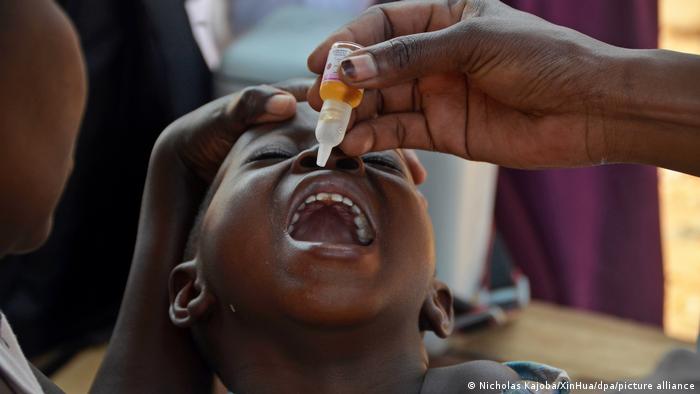
Malawi has reported an outbreak of wild polio two and a half years after Africa was declared free of the virus, the World Health Organization (WHO) said on Thursday.
Health authorities in the southeast African country detected one case of type 1 wild poliovirus in a young child in the capital Lilongwe.
Laboratory analysis linked the strain to one that has been reported in Sindh Province in Pakistan, where polio remains endemic, the WHO said. Afghanistan is the only other country with endemic polio.
Because it is an imported case from Pakistan, Africa will not lose its polio-free certification status, the WHO added.
The last case of wild polio virus in Africa was identified in northern Nigeria in 2016, said Modjirom Ndoutabe, polio coordinator in the WHO Regional Office for Africa, in a press statement. There were only five cases globally in 2021.
Africa has been considered free of polio since August 2020.
For a country to be certified polio-free, it must have had no wild polio cases for three consecutive years.
Polio risk ongoing
No country is immune to imported cases of polio, Matshidiso Moeti, the WHO's regional director for Africa, said in a press statement.
"As long as wild polio exists anywhere in the world all countries remain at risk of importation of the virus," Moeti said.
The coronavirus pandemic may have also caused some young children to miss their polio vaccinations, Nicola Stonehouse, a professor of molecular virology at the University of Leeds in the UK, told DW.
The WHO is helping to supplement vaccinations in Malawi, as well as support the risk assessment and outbreak response and ramp up surveillance of polio in neighboring countries.
What is polio?
Polio is a highly transmissible virus most often spread via the stool of an infected person, usually through contaminated water or food. It can also be spread via oral or nasal secretions. The virus mainly affects children under five years of age.
There is no cure for the symptoms of polio. Most people infected with the virus have no symptoms at all, according to the US Centers for Disease Control and Prevention (CDC). About one in four people will have mild symptoms that last two to five days, such as a sore throat, fever, fatigue, nausea, headache or stomach pain.
The virus usually stays in the gut, but when it spreads to other parts of the body it can cause more serious symptoms affecting the brain and spinal cord. These symptoms only occur in a small percentage of cases and can cause paralysis of some body parts, which can result in death if the breathing muscles become paralyzed, for example. This is known as paralytic polio.